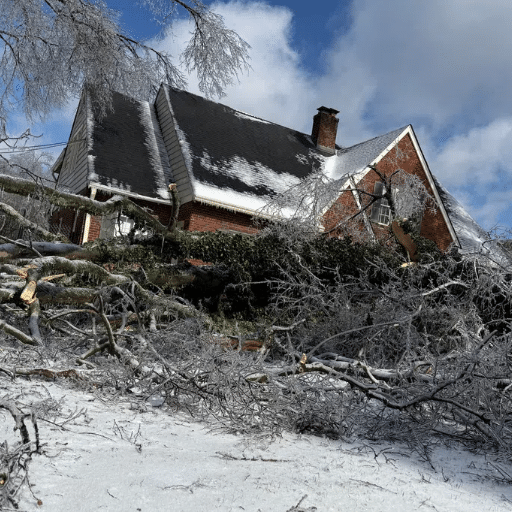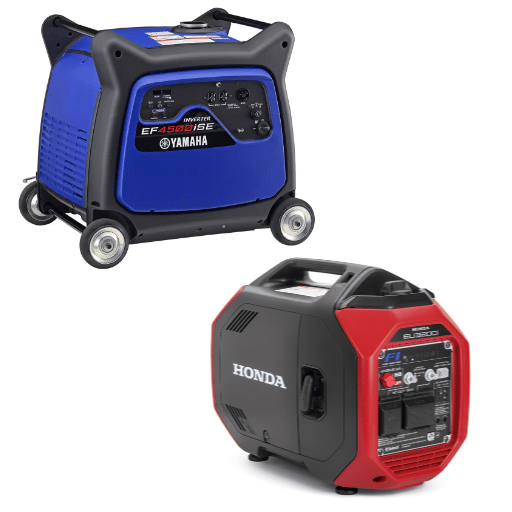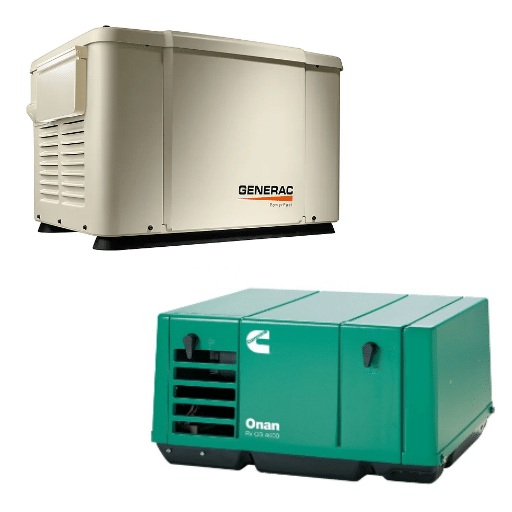When homeowners install a whole-home generator, they tend to expect an uninterrupted electricity supply even during power outages. It is reasonable to discuss the cost and other factors involved in installing such an apparatus. The number of things to mull over before concluding, including the amount of money one will need to buy a generator, the cost of labour, and other expenditures, shall be briefly discussed. In this post, you will learn the essential details, cases, and steps to the price and installment plan. In any weather condition or whenever you feel anxious, there is a wealth of information to help you decide whether a standby generator set is the ideal selection and how to ensure your house has power whenever you need it.
Introduction to Generators
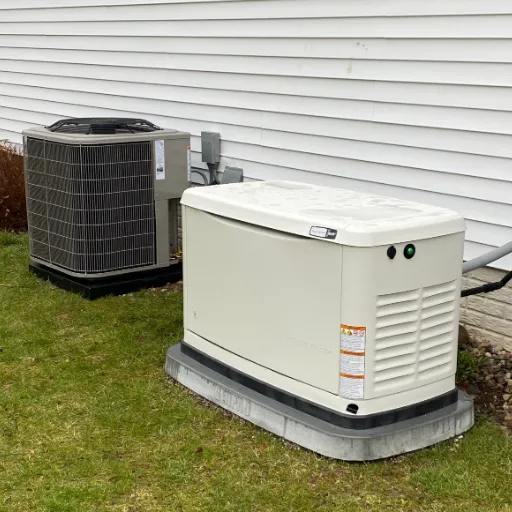
Generators are tools designed to provide an additional power source during a blackout or to power buildings that don’t rely on the mains grid system. They are responsible for eclectically powering household or commercial appliances and spaces where other sources of energy are not available, by converting mechanical energy in the generators into electrical energy. Generators are available in various designs, ranging from the simple, portable types designed for short-term applications to the more elaborate standby units that start up immediately upon a power loss. In many cases, the selection of a generator will depend on the power demand and the peripheral and mentoring requirements that come with proper installation by McGregor. Defining the energy demand will help the user identify the best and most efficient generator choice.
What is a Whole Home Generator?
A full-house generator, also known as a standby generator, is a robust emergency source that operates in the event of a power supply interruption to the network or when the power is turned off. This differs from the way portable generators are typically used, as they are designed to be carried wherever the user goes for camping or other outdoor activities. Household generators consist of large, fixed appliances located outside the property and connected to the house’s electrical system. These are usually fueled by natural gas or liquid propane; therefore, they do not require manual refueling to operate. Modern home generators are equipped with automatic transfer switches designed to detect power outages and start the generator within a few seconds, ensuring that power is not interrupted. These are an excellent comfort for households in areas with adverse weather conditions and frequent power outages, as they allow for leisure and peace of mind, and disruptions become an option for the owner.
Types of Generators Available
| Type of Generator | Fuel Source | Key Features | Ideal For |
|---|---|---|---|
| Portable Generators | Gasoline/Diesel | Easy to transport, limited power capacity | Outdoor activities, small appliances |
| Standby Generators | Natural Gas/Propane | Automatic startup, supports entire home power | Homes with frequent outages |
| Inverter Generators | Gasoline | Quiet operation, stable power for electronics | Camping, sensitive devices |
| Solar Generators | Solar Energy | Renewable energy, no emissions, quiet | Eco-friendly power solutions |
| Dual-Fuel Generators | Gasoline/Propane | Versatile fuel options, extended runtime | Flexibility in emergencies |
| Diesel Generators | Diesel | Fuel-efficient, long-lasting performance | Industrial and large applications |
| Gasoline Generators | Gasoline | Widely available fuel, portable design | General home backup use |
| Hydrogen Generators | Hydrogen | Clean energy, minimal environmental impact | Emerging technology enthusiasts |
| Wind-Powered Generators | Wind Energy | Eco-friendly, dependent on wind availability | Sustainable energy setups |
Benefits of Installing a Generator
Uninterrupted Power Supply
In case of sudden emergencies, with the help of a generator, it is possible to avoid interruptions in the power supply. This is particularly crucial for industries where a power outage would result in a significant financial loss. The U.S. Department of Energy reports that power blackouts in the U.S. cost the economy an astounding $150 billion every year.
Safety and Security
Electricity disruptions can compromise security systems, affecting both households and business entities, and potentially leading to security breaches. An installed generator will ensure security by allowing you to use the alarm or other security surveillance devices, even when the power goes out.
Protecting Essential Appliances
Many home and office appliances and gadgets, such as refrigerators and even advanced medical devices, are among those that cannot function optimally or flourish without the presence of power. These devices are rendered useless during a blackout, which can cause power interruptions and thus result in a decline. Generators help keep such appliances safe by providing them with the power they need in the event of a power cut.
Convenience During Emergencies
Generators help provide power to meet a building’s basic requirements when electric power fails due to natural forces or environmental circumstances. This is supported by statistics from the Federal Emergency Management Agency (FEMA), which suggest that around 90% of power outages in the United States are caused by non-human factors, resulting in the failure of affected infrastructure.
Enhanced Property Value
The presence of a generator can raise the asking sale price of the property. Houses equipped with efficient power generators tend to command a higher market value when seeking to sell, especially in areas that experience frequent electricity blackouts.
Clean and Sustainable Options
Thanks to advancements in generator technology, greener options like hydrogen or wind-powered generators are now available, thereby reducing the pollution associated with conventional fuel technology.
Generator Installation Process
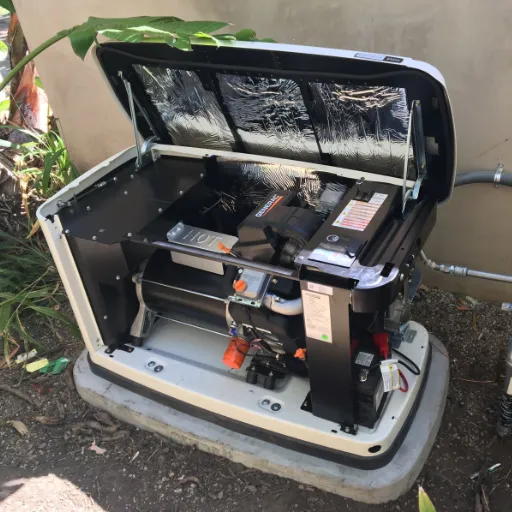
Assess Power Needs
To successfully meet your expectations during a blackout, it is essential to know which features of the house you want to keep operational, as this will guide you in determining the correct size and type of generator.
Select the Generator Type
Determine the appropriate generator type, such as portable, standby, or inverter generators, based on the amount of energy required and your budget. Standby generators are capable of providing power to the entire house when needed, while portable generators are more suitable for powering specific items.
Pick a Location
Position the generator in an appropriately leveled enclosure located at a reasonable distance from windows, doors, and air intakes to prevent harmful carbon monoxide backdrafting.
Prepare the Site
Based on the intended location, construct a strong base, which may be made of concrete or soil, that enables the generator to sit level and discharge any water and waste properly from itself.
Hire a Certified Electrician
If installing a standby or wired generator, you must contact a professional licensed electrician to manage the connections and apply the generator to a house’s electric hook-up system through a changeover switch.
Install the Fuel Source
Confirm that the source of energy is properly prepared and delivered, whether that be propane, natural gas, or some other, and that said source is in line with the requirements of the locality.
Test the System
Once the machine has been installed, a comprehensive trial has to be conducted to verify that the equipment is functioning correctly and that the equipment sustains the preferred load during a power cut.
Schedule Regular Maintenance
Change oil, replace filters, and do any other routine maintenance the generator needs so that it continues operating without fault.
Choosing the Right Installer for Your Generator
Quite naturally, a wide range of different professionals offer such services throughout the regions where they are most frequently sought. Discover some of the best licensed and certified electricians or generator installation technicians from the area. Look for assistance from individuals familiar with working within your jurisdiction’s legal and ethical framework, as it is essential to adhere to the law for the sake of safety and order. Internet reviews and testimonials also help in evaluating their reputation. In addition, seek credible references and ask to view some of their previous work to confirm their skill level.
Ask your suppliers to send you detailed estimates for price comparison, service range, and product guarantees. You should ask only a responsible seller who is willing to come at a common time for the assessment to determine the correct size and location of the power source in your house. It is also essential that a professional is punctual, has excellent communication skills, and accurately estimates the time it will take for the installation, the cost, as well as the maintenance. The truth is that a practical method exists for a prolonged, hassle-free life for your systems if you adhere to the selection of the best, successful projects implemented by experts.
Permits and Regulations for Generator Installation
Given that the use of the generator will require an application for the local council license, it is necessary to understand and follow the established process. Secondly, local governments require specific permits to ensure the installation adheres to regulations regarding the field of the building and safety standards. Such permits typically include inspections that must be carried out to confirm the safe location of the generator, control noise levels, ensure adequate ventilation, and verify fuel storage safety requirements.
Additionally, property owners need to verify the zoning and homeowners’ association (HOA) restrictions, as these may prohibit the installation or concealment of the generator. This implies that there is a necessity to adhere to the prevailing rules and regulations and be cautious of safety measures to prevent external and unwanted accidents. In such circumstances, following correct installation procedures ensures that the construction, performance, and durability of the electrical equipment are optimized. Failure to obtain proper approvals and comply with regulations will lead to a cumbersome situation, where the relevant authorities may impose fines and cancel registration. In every case, it is advisable to contact the appropriate local institutions and always engage a competent professional for the safety of the structure.
Factors Influencing Cost to Install a Generator
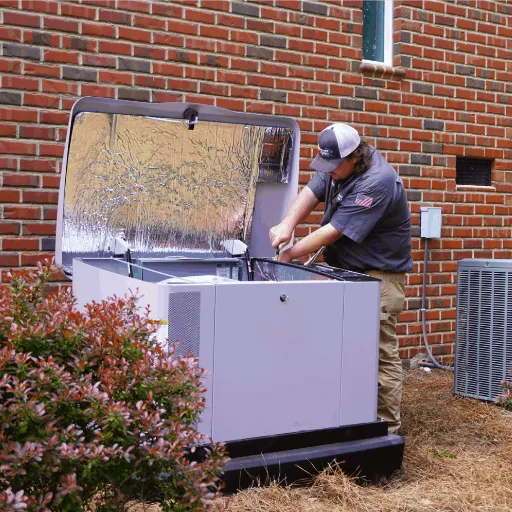
Generator Size and Type
Generator size and type tend to impact cost. It is effectively more expensive to buy and install bigger or better generators.
Installation Site Preparation
Costs can increase if there is a need to address tasks such as clearing the site, laying a concrete pad, and so on at the property.
Distance from Fuel Source
The distance between the generator and its natural gas supply, or any other related arrangement, such as a propane line or a diesel fuel tank, affects the installation cost. The reason for this is that longer distances require more material and work.
Electrical Upgrades
This increases the total expenses to be incurred if the house requires modification to the power source to be adequately supported by the generator.
Permits and Inspections
Additional fees related to building permit applications and necessary inspections will be applicable, and these will be all that is needed to ensure proper installation and compliance with building codes.
Labor Costs
Installation by most electric professionals will be charged based on the complexity of the installation and the local labor rate.
Size and Type of Generator
Generators are sorted by their power output, usually in kilowatts (kW). A typical range for a small generator used for basic household needs and individual devices is approximately 5kW to 7kW, or even 8kW. Little ones have a spread of 11kW to 14kW, middle-sized ones – from 14kW to 17kW, while great conquests can support 22kW or more. An emergency generator is put with its enormous mass costs. Portable generator types have lower fees and are suitable for brief use, for example, when there is no power for two to three days. As for unlimited use during blackout, the standby generator is installed with the house, wired, and automatically takes over power Restoration when the lights go off. Further, deciding whether to use petrol, diesel, natural gas, or propane also influences the design of the generator in terms of its cost and other operating expenses. Assessing the levels of energy transmitted within the residence, meaning taking on the allocated time that the generator can be on call, and the primary factors like the period of time one is likely to require comfort, and the most probable source of an appropriate fuel will also aid in determining the best generator to be used.
Installation Complexity
Usually, home generators can be installed easily, or they can be tough – it mainly depends on the specific appliance and its make. You will agree that a brief description of a small device with intuitive instructions cannot be classified as something formidable, and installation may only take one’s knowledge and placement wherever one would like to. For those who are familiar with the components of the generation industry, however, assembly will be a bit tedious, as professional assistance will be required to integrate the generator into the house’s electrical system. This involves a detailed layout of how the generator will fit into your home, including any necessary local building code approvals, the generator’s location, and the automatic transfer switch, where applicable. Building vents and exhaust pipes are simple but effective ways of addressing this problem. It extends to gas or propane generator installation, ensuring the supply and delivery lines are in order, and adhering to sound and ventilation requirements. Understanding the exact criteria and engaging a capable electrician before the work begins will significantly reduce the risk of occurrence.
Permitting and Local Regulations
To install a generator, it is necessary to comply with the local municipality’s permit regulations as well as those of the state. Several authorities require permission whenever a generator is to be installed or operated, which is typically handled by the city’s building regulatory authority, as is the case in many places. Such permits are responsible for ensuring that the setup is done according to established safety norms, building, and electrical codes. Alternatively, stipulations regarding the placement of the generator may be specified, e.g., the generator should be positioned so as not to be close to any walls, non-removable structures, or combustible materials. In fact, other local government regulations may specify tolerable sound levels during the run to avoid noise disturbance, especially in residential zones. All relevant codes and regulations must be checked before starting the machine installation, as a breach of any may result in penalties or additional expenses for rectification. A further requirement for the permit may be to present proper documents and undergo verification before and after installation is completed, ensuring that the installation is in conformance with local standards.
Average Costs for Generator Installation
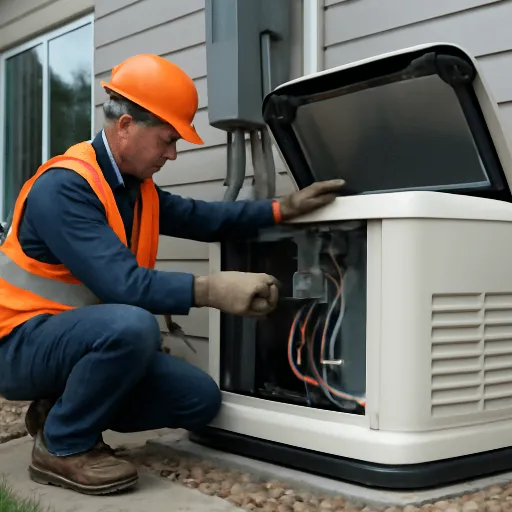
The exact charge you will incur to acquire and set up a generator is flexible and depends on the rate at which installations are charged in your area, as well as the type and size of the generator. Typically, the cost of installing a standby generator for a house owner is expected to be within a margin of $ 3,000-$ 7,000, which should cover the actual purchase of the generator and the professional installation. Smaller, portable generator installations typically do not require professional installation and can range between $500 and $2,000. Other charges might include providing permits or if the property needs electrical or structural work done. It is easy to assume that the costs of such projects are high, but the precise costs will depend on several factors. Hence, it is advisable to seek a competent professional and request a detailed list of costs tailored to your specific needs and location.
Cost Breakdown of Whole House Generator Installation
The information indicates that the construction of a full-house power plant costs between $5,000 and $15,000, considering factors such as the volume of the proposed power plant, its design features, and local labor costs. The corresponding power plant itself will be sold between $ 3000 and $ 10000, including the cost of extra-large-sized sections made for houses, of course, a little up because they are priced higher. A popular network product (plug-and-play) in home automation, the average installation cost is between $1,000 and $5,000 for a 10-circuit sort of product. Added charges for accessories might include transfer switches, which are usually in the range of $500 to $2,000, or even some ‘back office’ wiring and manipulation, which can be significantly more substantial than the modest one we have just discussed. It is also important to remember that this work is not restricted to the installation costs. It should also include permit costs, which are usually in the sum of $50 to $500, and also maintenance costs, which can go upto $200 to $500 per year. It is therefore advisable to request the most detailed, specific, and indicative fixed-price quotes for jobs inconsistent with the available network data.
Comparing Standby Generator Costs
When comparing standby generator costs, the following factors are the primary considerations: the size of the generator, the manufacturer, and the level of technical complexity required during installation. Standby single-phase generators with a power capacity ranging from 7 to 10kW are small, single-phase generators for domestic use, which, excluding installation costs, can cost the consumer between $2,000 and $5,000. Larger size generators, intended for large houses and commercial facilities, however, are more expensive, with prices ranging from about $10,000 to $20,000 and even higher. Moreover, the type of fuel used also affects the cost the cost of installation and operating the machine, something which has been aggravated by the fact that in some fuel types, like natural gas and propane, are cheaper in operating diesel as far as the use of Cert diesel is concerned installation or Commissioning involves significant financial expenses as usually, its cost accounts for about 50% of the total cost of undertaking the project In view of the above, it is clear that knowing all these things would help homeowners identify which kind of generator is most suitable to them and the cheapest.
Additional Costs to Consider
There are many additional expenses to consider when purchasing a generator, beyond the initial purchase cost and installation. Starting with the easy one, the cost of maintenance varies according to the specific system in use and the level of utilization, from $200 to $600 per annum. Changing the oil, as well as the filters and other parts, is very important for the vehicle to run efficiently and prolong its useful life. Fuel incurs additional costs, mainly when diesel or gasoline is used in specialized tanks equipped with safety equipment. Then there are the approvals, especially in places where municipalities are strict in granting them or even in obtaining legal operational permits, which cannot be any less in terms of cash outlays. Lastly, renovations such as the electrician’s reworking the electrical circuit to accommodate the backup generator can also be costly and account for a large percentage of the overall installation cost. The foregoing helps outline the total amount that should be set aside to meet the identified needs.
Finding a Qualified Generator Installer
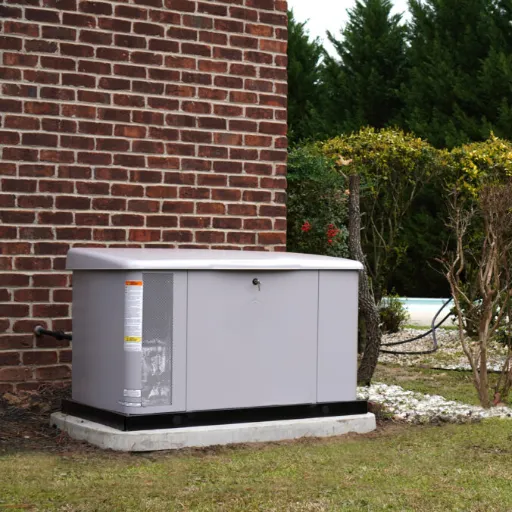
Locating the proper generator installation specialist begins by narrowing down your search to reputable local professionals with significant prior experience in generator installations. Try choosing service providers that adhere to conditions such as proper licensure, insurance, and satisfactory customer service ratings. Additionally, check with the manufacturer to determine if dealer spaces in this market are allocated to specialized contractor employees. It follows that the licensed technicians have undergone thorough specialization in installing those makes and generations. Also, find more reliable sources of references who can help you find who has done it before, which, in other words, can be your neighbors, friends, or online people. Moreover, gather quotations from several installers and compare the service costs and the time it takes to respond. It is always encouraged to inquire about their specific installation requirements, the level and duration of the warranty, as well as other benefits that the system brings, and dont forget the after-sales service. A well-known team of installers will always provide proposals in a manner that justifies every rating, along with the anti-indicators being placed on the particular gravity scale, supported by well-founded pricing, average response times, and the features of the customized approach that have been demonstrated in the past.
Questions to Ask Potential Installers
1. What is your experience with installations of this type?
Ask them about the things that demonstrate they have experience in this domain, such as installing similar applications or products. Providing some of their past installations will also be helpful.
2. Are you licensed and insured?
Lest their qualification remains a mere stat, ask them to show you their registration and a copy of the insurance for the installation to be done efficiently and adequately secured.
3. What does the warranty cover?
Ensure that the limitations of the manufacturer’s warranty are clearly communicated to the client and specify the duration of the worker’s liability, as well as who shall bear whose protection against all potential risks that may occur during the installation.
4. What is your estimated timeline for completion?
Know when you should expect the backup and push for the delivery and installation of the system on predetermined dates.
5. Do you provide a detailed quote?
Request that the cost of services, materials, or any other charges be included in the price quote for easier comparison of prices between different quotes.
6. What is your approach to unexpected issues?
Politely inquire about the PRUs mechanism they employ to counter any issues encountered during the installation of the systems. Are there any additional charges applicable?
How to Evaluate Installer Credentials
To ensure that an employee is both expert and trustworthy, it’s essential to conduct thorough research first. It is necessary to verify whether they possess the required qualifications, such as certificates, licenses, and insurance coverage, and whether they are compliant with the established standards and local laws to avoid complications. Additionally, consider companies that have strong partnerships or are members of reputable professional associations. It is essential to understand that completing a given course is not enough, as individuals are constantly improving and working in accordance with the latest techniques and standards.
Additionally, it is essential that their capabilities and history are thoroughly scrutinized in addition to the basic requirements. They help by showing you the projects they have done in the past that compare to yours; to avoid getting questionable services, take a closer look at whether they are focused on what you want. Sounds interesting, but possible. For example, their professionalism, quality of the work done, and especially the likelihood that they submit on time can be deduced by scanning the clients’ reviews and recommendations on different articles and websites.
Additionally, check if they are continuing their education. Those who are in the line of fixing lifts, updating their skills on the latest methods and technologies, are known to be more progressive and therefore can deliver better results to customers. It’s important to note that you shouldn’t be afraid to ask for contacts personally and actually make it a point to get in touch with some previous users to gather their actual opinions of the contractor and their work.
Getting Quotes and Estimates
Wherever you want to make requests based on prices and any necessary estimates, it is crucial to ensure that you get to the core of the problem through an understanding of the differences. There is a chain of supply and demand businesses, and it is essential to contact multiple companies, as they offer varying prices. Therefore, ensure that you have collected detailed charge breakdowns in every quote, which may include materials, labor, and any other applicable charges. Particular attention should be given to such possible underestimations of estimates, because cleaner prices are very different from these. Because of this, please specify in your quote how many days, weeks, or months it will take to complete the job, as the work must be done efficiently and of a moderately good quality.
Additionally, there are a few other things to note, such as the delivery date and the estimated time for delivery of the deliverables. There is specific information in a few made-up writings from honeymoon resorts, which suggests pricing based on customer reviews, which may differ from that of package vacation rentals. By taking this careful and detailed approach, you can be sure that your choice of professional will be the most suitable for the task.
Reference Sources
-
A Sizing Method for PV–Battery–Generator Systems for Off-Grid Applications
- Key Findings: This study explores the capital and operational costs of integrating photovoltaic (PV), battery, and generator systems for off-grid applications. It highlights that generator costs vary between €1,390 and €1,500 per unit, influenced by location and shipping.
-
Methodology to Calculate the Costs of a Floating Offshore Generator System
- Key Findings: This paper focuses on the cost components of installing floating offshore generator systems. It breaks down costs into categories such as device installation, floating platforms, and maintenance.
Frequently Asked Questions (FAQs)
Q: What is the Average Cost of a House Generator?
A: The cost for a standard-size whole-house generator installation depends on how big the structure is and the level at which the machine is being used. Typically, the price of a basic model ranges from $5,000 to $15,000. This charge encompasses the generator, dam, electrical work, and any necessary permits. Other considerations, such as whether the generator uses natural gas or propane, as well as the complexity of its assembly, will also influence the cost of installing a whole-house generator. If it’s a calculation, use an online estimator or a simple translation, without altering the original sound.
Q: How Does the Cost to Install a Whole Home Generator Vary?
A: Quality of the work comes at a price, as well as at the cost of a whole-house generator. The components of a whole-house generator and the manufacturer can be contributing factors to the installation cost. The charges for installing a whole-house generator may also depend on modernizing the electrical panel or installing an additional gas line, in addition to the existing one. Moreover, regulations regarding the zoning and location of a house can increase the overall expenditure. In most cases, the majority of homeowners should be guided by installation cost expectations ranging between $ 3,000 and $ 10,000 due to these factors. Bringing concerns to a professional contractor who claims to have done similar work helps in understanding the rough estimates for each project.
Q: What is Involved in the Installation of a Home Generator?
A: To install a home generator safely and adequately, several essential stages are performed. At first, the positioning of the generator, including the provision of power and natural gas, is carefully assessed. After that, the electrical equipment work is complete, and it may be necessary to activate an additional unit, thereby improving the capacity of the circuit breaker panel. In many cases when the installation of the generator is done, a gas supply line will also be provided. It is always recommended to run a test on the end product after the work is done, to verify whether it meets the purpose and the requirements. The seminar, which addresses the topics mentioned above, will serve as a source of information regarding the seminar codes and prepare the agenda accordingly.
Q: How Can I Get a Quote for Generator Installation?
A: If you want to request a price for generator installation, the way to go is to search local professionals who specialize in the mentioned service. Many specialists offer a free estimate that fulfills the particular needs of the homeowner, e.g., the size of the generator set in comparison to the household’s power requirements, along with any necessary electric work. But before reaching out to installers, it is advisable to know just what the generator should supply and whether there are spending limits. Supplying their computation for the house and the type of equipment to be installed will make it easier to determine the expenses of installing the set. Also, always avail estimates from various companies to ascertain that you get value for the money spent.



